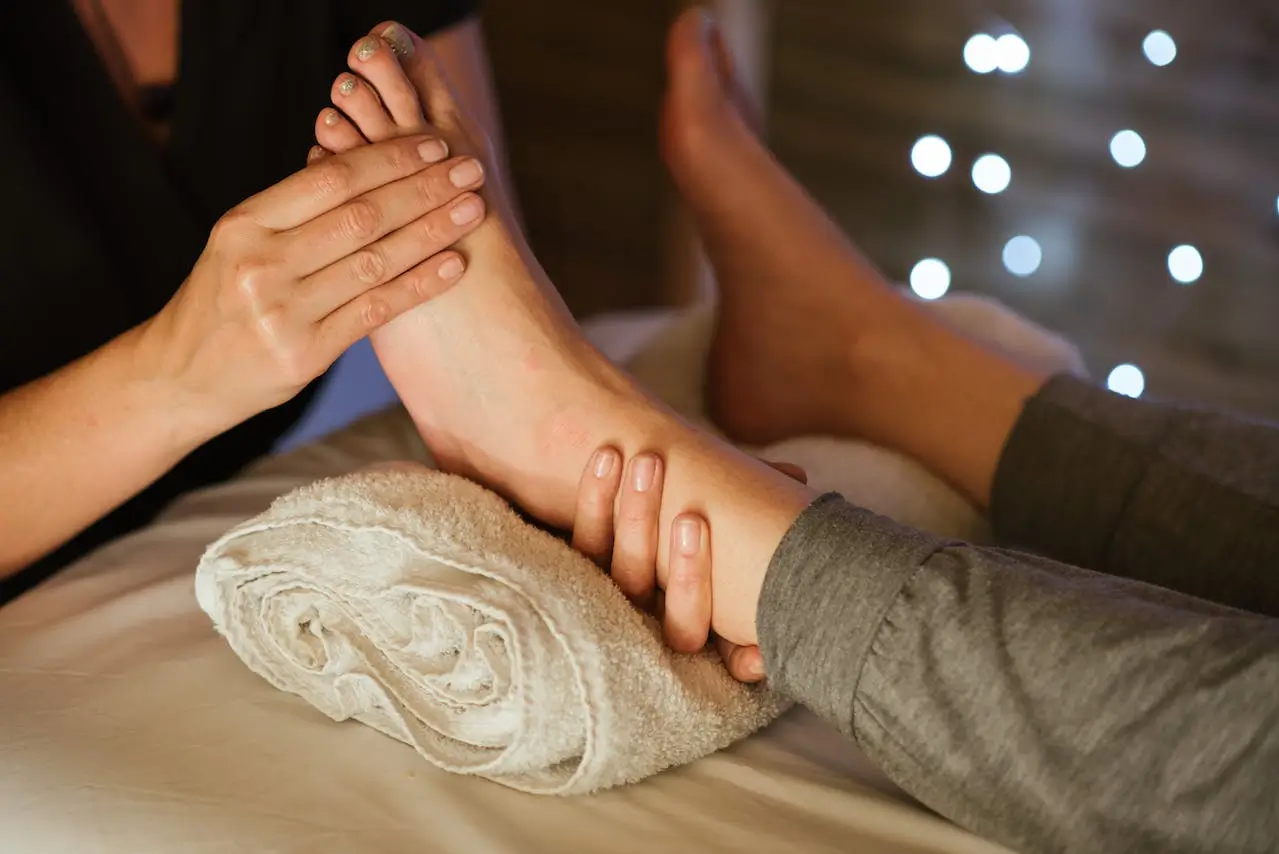Your Guide to Vulvar Itching at Night During Menopause: What’s Happening and How to Cope

Vaginal itching during menopause, particularly vulvar itching worse at night, is a common yet bothersome symptom many women face. This condition is largely attributed to hormonal changes and declining estrogen levels, leading to discomfort and impacting quality of life. Postmenopausal women may find this issue intensified due to conditions such as lichen sclerosus, contributing to increased sensitivity, itching, and potentially leading to complications like bleeding and tissue scarring.
Understanding the root causes, including the risks of bacterial vaginosis, yeast infection, and inflammation, alongside other physical changes like insomnia, is crucial for management. This article delves into the intricacies of vulvar itching during menopause, discussing its connection with decreased estrogen, sexual discomfort, and the heightened risk of infections. Additionally, it outlines effective treatment and management options to alleviate symptoms and improve well-being.
Decreased Estrogen and Vaginal Changes
Decreased estrogen during menopause significantly affects vaginal health, leading to a range of uncomfortable symptoms. Here’s a breakdown of the key changes and their impact:
- Vaginal Dryness and Irritation:
- Decreased estrogen levels lead to less blood flow and thinner, drier vaginal tissue. This results in symptoms such as burning, itching, and spotting.
- Reduced vaginal secretions mean decreased lubrication, making the vagina less moist and more susceptible to irritation and inflammation.
- Changes in Vaginal pH and Microbiome:
- A higher vaginal pH makes the environment less acidic, similar to before puberty. This shift can throw off the balance of bacteria in the vaginal microbiome, increasing the risk for infections such as bacterial vaginosis (BV) and yeast infections.
- Normal healthy vaginal flora, mainly comprising Lactobacillus species, is disrupted. Decreased estrogen secretion depletes lactobacilli, allowing harmful microorganisms like Enterobacter and Escherichia coli to thrive.
- Physical and Emotional Impact:
- The condition known as vulvovaginal atrophy is characterized by thinner, drier, and less elastic tissues in the vulva and vagina. This can lead to painful sex, frequent urinary tract infections (UTIs), and even bleeding during intercourse.
- Emotional side effects may include loss of interest in sex and intimacy, impacting one’s relationship with their partner and overall quality of life.
Understanding these changes is crucial for managing symptoms and seeking appropriate treatment options to alleviate discomfort and maintain vaginal health during menopause.
Sexual Discomfort
Addressing sexual discomfort during menopause requires a multifaceted approach that focuses on alleviating symptoms of vulvar itching and vaginal dryness. Here are some effective strategies:
- Topical Treatments and Self-Care:
- Gentle Cleansing: Opt for mild, unscented cleansers designed for sensitive skin to avoid exacerbating irritation.
- Moisturizers and Lubricants: Utilize over-the-counter vaginal moisturizers like K-Y Liquibeads, Replens, and Sliquid to maintain moisture. During sexual activity, water-based lubricants such as Astroglide, K-Y Jelly, and Sliquid can reduce discomfort.
- Topical Estrogen Therapy: Vaginal estrogen, available in creams, tablets, or rings, is a highly effective treatment for vaginal dryness and irritation.
- Symptom Management for Vaginal Atrophy and Infections:
- Vaginal Atrophy: Symptoms include burning, itching, spotting, and pain during intercourse. Regular sexual activity can enhance blood flow to the vagina, improving elasticity and reducing atrophy symptoms.
- Yeast Infections: Characterized by vaginal itching, white discharge, soreness, and possible vulvar rash. Over-the-counter antifungal treatments and maintaining good genital hygiene can offer relief.
- Preventing and Managing Vulvar Itching:
- Lichen Sclerosus: A chronic condition causing vulvar itching, inflammation, and tissue scarring. While not commonly treated with surgery, topical steroids may provide symptom relief.
- Other Causes: Include lichen planus, eczema, psoriasis, and skin conditions like vulvar intraepithelial neoplasia. Identifying the underlying cause is crucial for targeted treatment, which may involve corticosteroids, moisturizers, or hormone therapy.
By incorporating these strategies into daily routines, individuals can significantly mitigate the discomfort associated with sexual activity during menopause, improving overall quality of life.
Risk of Infections
Vulvar itching during menopause can stem from a variety of conditions, each with its own set of treatments and management strategies. Understanding these conditions is the first step toward finding relief:
- Vulvovaginal Atrophy and Vulval Dermatitis: Often resulting from decreased estrogen levels, these conditions lead to thinning, drying, and inflammation of the vulvar and vaginal tissues. Low-potency topical corticosteroids may help reduce inflammation in cases of vulval dermatitis.
- Lichen Sclerosus and Lichen Simplex: These chronic skin conditions cause significant itching, and in the case of lichen sclerosus, can lead to tissue scarring. The usual initial treatment involves potent or ultra-potent topical corticosteroid ointment.
Common infections during menopause, their causes, and symptoms include:
- Bacterial Vaginosis (BV): An imbalance in vaginal bacteria causing itching, burning, and abnormal discharge.
- Yeast Infections: Triggered by an overgrowth of Candida fungus, leading to intense itching, redness, and discomfort during intercourse.
- Urinary Tract Infections (UTIs): Characterized by a frequent urge to urinate, along with pain or burning sensations during urination.
Risk factors for these infections are varied, encompassing lifestyle choices and physiological changes:
- History of Vaginal Infections: Previous episodes can increase susceptibility.
- Medication Use: Especially antibiotics, which can disrupt the natural balance of vaginal flora.
- Sexual Activity: Can introduce new bacteria or fungi into the vaginal environment.
- Clothing Choices: Wearing wet bathing suits or workout clothes for extended periods, or selecting synthetic undergarment materials, can create conditions conducive to fungal growth.
- Diet and Habits: Increased dietary sugar or alcohol intake can promote yeast growth.
- Hormone-Based Medications: Can affect the natural balance of hormones and vaginal flora.
Addressing these risk factors through lifestyle adjustments and seeking appropriate medical treatment when symptoms arise is crucial for managing vulvar itching and preventing further complications.
Treatment and Management Options
When tackling vulvar itching worse at night during menopause, a comprehensive approach to treatment and management can significantly alleviate symptoms. Here are the strategies categorized for clarity:
Daily Care and Prevention
- Personal Hygiene:
- Clean gently with warm water and a mild, unscented soap.
- Avoid douching to maintain natural vaginal flora.
- Use white, unscented soft toilet paper.
- Clothing Choices:
- Opt for loose, breathable clothing and comfortable underwear to reduce irritation.
- Change out of wet bathing suits and workout clothes promptly.
- Skin Care:
- Apply a vaginal moisturizer regularly.
- Use a water-based lubricant during sexual activity to reduce discomfort.
- Cool compresses, oatmeal baths, and moisturizing can soothe itchy skin.
Medical Treatments
- Hormonal Treatments:
- Estrogen Therapy and Dehydroepiandrosterone (DHEA) for vaginal atrophy.
- Hormone Replacement Therapy (HRT) may be beneficial for some women.
- Vaginal Oestrogens: Prescribed pessaries, creams, and gels for direct application.
- Nonhormonal Options:
- Lubricants and moisturizers for daily comfort.
- Laser Treatments and Vaginal Dilators for severe cases.
- Ospemifene (Osphena®), a non-estrogen medication for vaginal atrophy.
- Sedating Oral Antihistamines or Tricyclic Antidepressants for severe itching.
Special Considerations
- For Skin Conditions:
- Topical Steroids like mometasone furoate or clobetasol propionate for lichen sclerosus.
- Calcineurin Inhibitors as a second-line treatment.
- Probiotic Use:
- Consider a probiotic containing Lactobacillus strains to optimize the vaginal microbiome.
- Probiotics can reduce symptoms and are helpful in the treatment and prevention of BV and VVC.
- In Case of Breast Cancer History:
- Nonhormonal treatments, vaginal dilators, and consultation for vaginal estrogen use are recommended.
It’s crucial for individuals to consult a healthcare provider to tailor the treatment plan to their specific needs, considering the wide range of options available. Monitoring and adjusting the approach based on symptom relief and side effects is essential for effective management.
Conclusion
Through this exploration of vulvar itching during menopause, we’ve illuminated the significant role hormonal changes play in contributing to this discomforting symptom. We’ve addressed the multifaceted nature of vulvar itching, linking it to decreased estrogen levels, the risk of infections, and the impact on sexual comfort and vaginal health. The array of treatment and management options provided, ranging from daily care practices to medical interventions, aims to offer relief and improve the quality of life for those affected.
Understanding the underlying causes and implementing the suggested strategies can greatly alleviate symptoms, fostering a better night’s rest and overall well-being. It is imperative for individuals to engage in open dialogues with healthcare providers to tailor these strategies to their unique needs. While this guide serves as a comprehensive resource, continued research and consultation with healthcare professionals are essential for navigating this challenging aspect of menopause with confidence and comfort.


